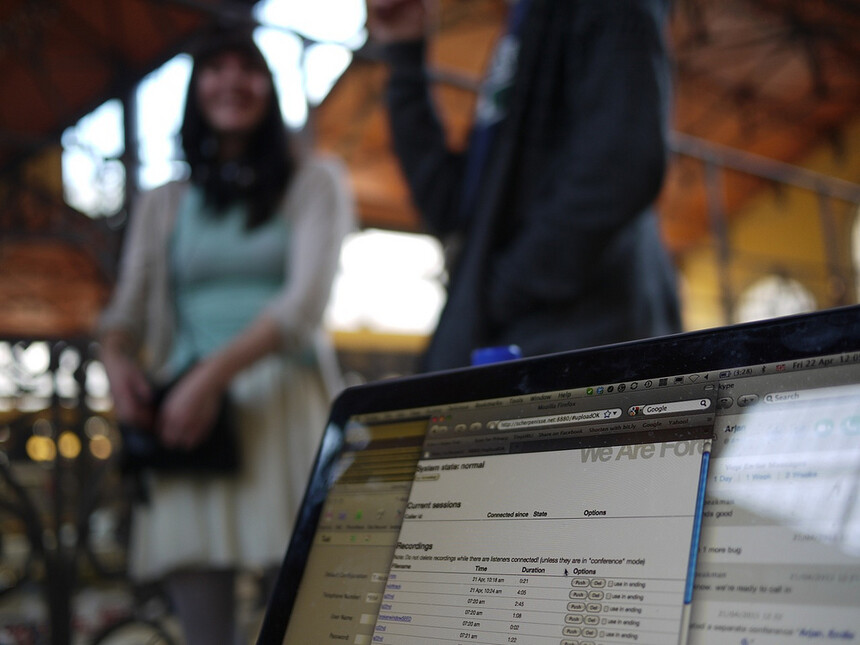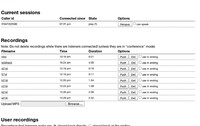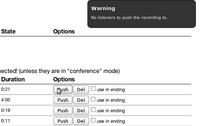We Are Forests
A mobile sound work that explores ideas of intimacy in public space.
We Are Forests is a mobile sound work developed by Emilie Grenier and Duncan Speakman, and is the first collaboration of these two artists, who both have a history of making sound-based works. With Duncan's work rooted into scripted, narrative performances and Emilie more into user-generated content, We Are Forests combines these two approaches in a sound performance of about 30 minutes for 10-20 active participants.
The idea behind We Are Forests is that participants gather at the place in the city the particular instance of the performance is about. They leave their phone number and at a certain point they all get a phone call. From that moment on, the performance has started.
Every participant hears pieces of location-specific pre-recorded text, music and atmospherical sounds, while they wander seemingly at random around the place, e.g. a market hall. At any point in time, participants can choose to leave their own recording, it being a thought entering their head, or a particular sound they hear. The recording is then shared with all the other participants.
Meanwhile, the performance “conductor” sits behind a laptop, monitoring the perfomance via a web interface. The conductor can insert more pre-recorded messages, instructions etc. in to the participant's streams when he feels the time is there. Besides this, the conductor also has a “live phone”, which can be used to stream live audio to the participants, without it first needing to be recorded.
The performance ends after about 20 minutes, when the participants are instructed to return to the place they started, and when arriving there, to open a piece of paper in their pockets. The paper reads: “hang up the phone”.
I created the software for the first version while Duncan and Emilie were staying in Amsterdam, and the first performance was on the Spui square with about 10 participants. It worked wonderfully, although at the end of the performance it crashed due to a missing audio file. However the test was successful and the artists decided to keep working with me to improve the software while they were in Budapest.
Version 2 added a conference feature: When a session's queue is empty, the caller is put in the “conference” state. Basically, he is transferred to a conference room, but his audio is muted, so he can only listen. This is the place where the conductor can decide to use his live phone to speak to the persons currently in the conference. Whenever there are files pushed to the queues of the listeners, they get transferred back into “play” state.
Besides adding the conference room, the second iteration of the project added a real-time web interface to monitor the state of the application and of each caller, and allowing the conductor to trigger recordings at specific times.
Keywords
More images
« Previous project Next project »



